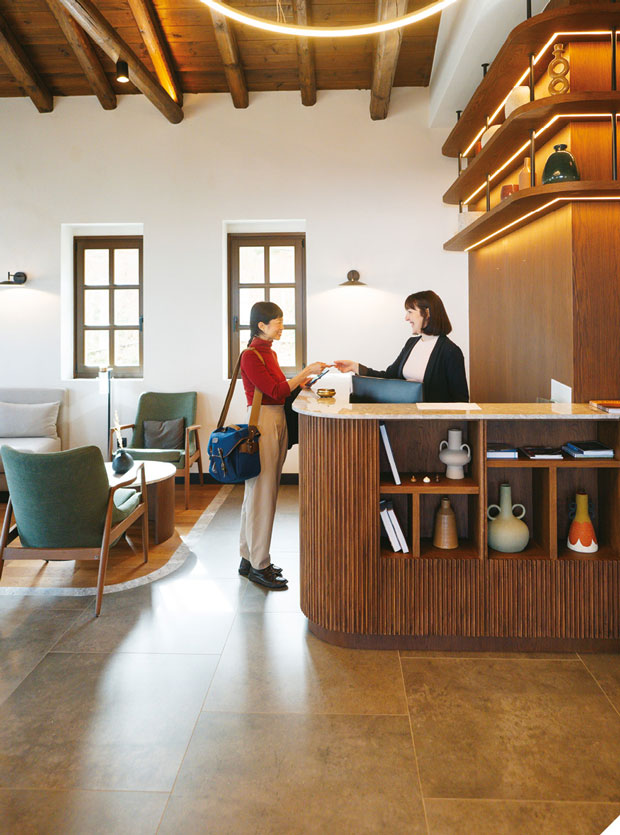Madeleine Ford explores how hospitality-led facilities management is transforming the workplace into a destination for talent, wellbeing and brand culture
The current picture of facilities management is one of being increasingly experiential, not just operational. FM isn’t just supporting hospitality it’s increasingly adopting its principles as the industry becomes more experienced driven, people-centred, and service-minded.
FM and hospitality practices could in some ways be seen as going together and this line is becoming increasingly blurred, even more so since the increase in hybrid work patterns post pandemic. It is becoming increasingly apparent that to entice employees back, the workplace needs to become a space that offers value that remote settings cannot. What has developed from this is the curation of hospitality-driven environments, design, and services. Just as hotels and restaurants aim to create an experience for their guests, organisations are looking to create a better experience for their employees.
THE HOSPITALITY LENS IN FM
According to Lynsey O’Keefe CEO Corporate Services at Sodexo UK & Ireland, FM services delivered with a hospitality-centric approach empower organisations to create a workplace that not only boosts productivity but also fosters a sense of community and serves the purpose of retaining the best talent. O’Keefe explains that it is essential for FM providers to offer solutions that create positive and engaging workplaces, where people feel good about their work, as “when they feel good, they stay longer and work harder”.
Workplace culture is already heavily influenced by hospitality driven FM practices, from the creation and layout of the surroundings down to amenities such as access to high-quality coffee. Matthew Blackmore, Head of Marketing at iKhofi, states that office amenities and facilities are vital in FM as they are no longer perks, they’re expectations. Listening to and providing the wants and needs of employees boosts morale and signals care. This is particularly important in companies that want their employees to return to the office. For individuals to go back to the office they need to be given reasons to want to return, which has resulted in a shift towards hospitality-first environments.
Maxime Herbaut, Head of UK Brands & Customer Experience at Cimbali Group which makes premium coffee equipment, reiterates that aspects that may seem like a small part of the big picture, such as the provision of good coffee, bridges the gap between home and work and acts as a social anchor.
“When people come into work, they expect the same if not better than they experience in their own homes, from access to high quality, healthy food and coffee, a variety of workspaces, and a seamless technological experience. In order to attract and retain talent the office cannot just be a place to work, it must offer value that remote settings can’t.”





